Main image – photo credit: Laura Jay Nethercott
Nothing seems to stop Mlle Boop, a true show-business woman like no other. After being one of the most well-known Drag Queens of the famous bar “Chez Maman”, she opened the first queer cabaret of Brussels called Cabaret Mademoiselle – instant success with an endless queue on a daily basis. She is one of the major pioneers that changed the alternative arts scene. After a few years she also opened The Agenda, the latest queer bar that became scene’s go-to overnight. She proves herself to be more than a performer, an entrepreneur and leader that proves that with little means and a lot of hard work, anything is possible.
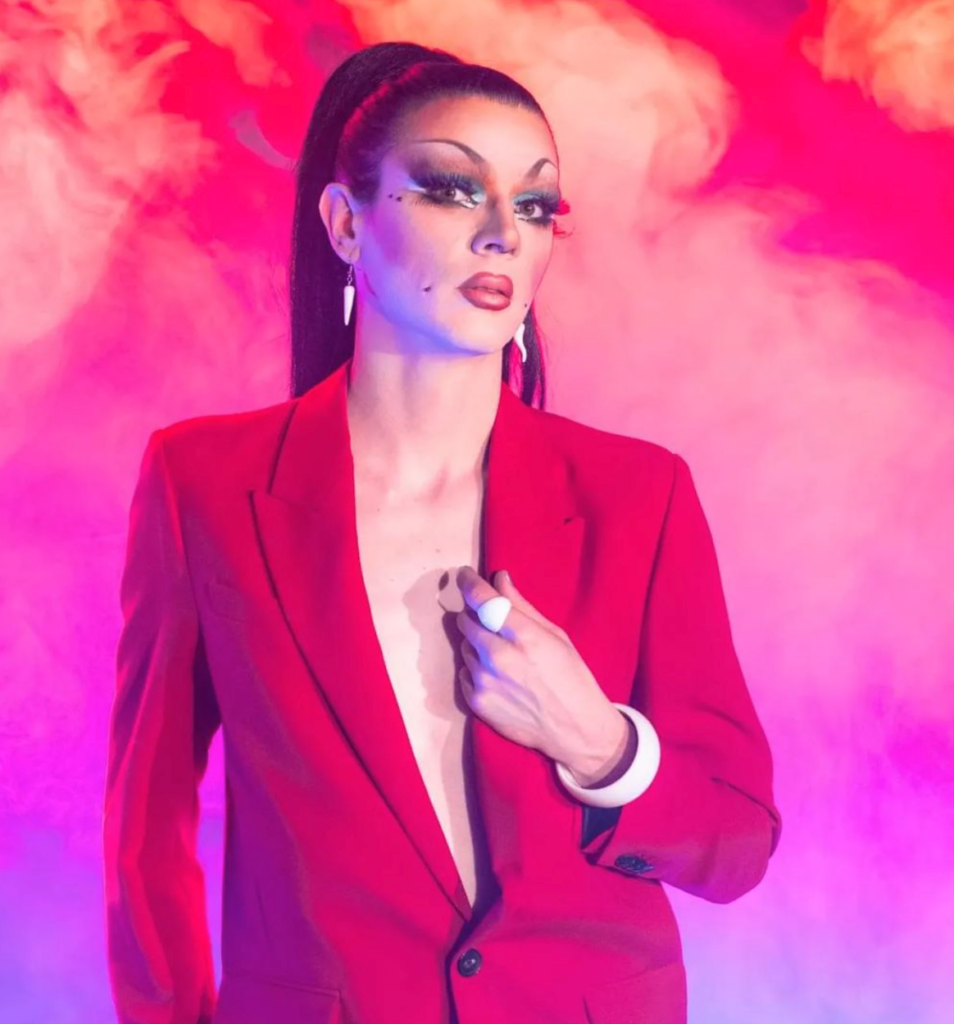
Hi there! So my first burning question is : How do you do it, what’s the secret to your success, is it just brilliant marketing (which you actually studied)?
I’ve been down many different roads. I’ve started off my artistic path at a very young age. I went to the art academies, I did dancing and played three or four musical instruments which fed my artistic side. On top of that, after my studies in marketing communication, I didn’t want to work in that field at all, so I just put myself out there. I had different jobs as a bar-manager at Chez Maman and store manager at Lush. Eventually, all the skills and responsibilities that I acquired made it possible for me to manage a project like the cabaret. I know what is required behind the bar as well as on stage or backstage, and that’s why I think I’m good at what I do.
Apparently it was Maman who challenged you to try out Drag. Can you tell me what was the moment when you said yes and went for it?
So it was during my studies at IHECS. A friend of mine had to do a photoreport project on a profession, and she decided to go follow some drag queens who perform at Maman’s and she asked me to go with to help her. At the time I used to go to techno parties and kind of avoided the gay bars where they would play pop music – I wasn’t particularly interested in any of it. It just wasn’t really my thing. But I still went with my girlfriend for this project and spent six months learning about what it was really like to be a Drag Queen. At the time, in french, they called it rather “transformiste” or “travelote”. I realised that it was nothing like the assumptions and very cliché images I had. I discovered that it was a very complete discipline that combined the art of make-up, dance, acting, theatre, and music.
Spending so much time in the dressing rooms with the artists definitily tickled my curiosity as it brought together all of my creative interests. So eventually September comes up, where at Maman’s they throw their yearly “La Nuit des Débutantes”. That’s when Maman said to me : “So, we’re doing beginners’ night, give it a try! Since you’ve annoyed us for six months with all your pictures of us, How about you go on stage now and see for yourself?”. It didn’t take her too long to convince me. So in September 2005, I did my first night with the weirdest performance ever on a song by Björk. While at the time they were doing all the classics: Celine Dion, Mylène Farmer, Dalida – I showed up with Björk and they had put a wacky dress, a mohawk and the craziest makeup. So it was really cool, quirky and very different. I loved it and so did Maman. So I continued with my electro-punkness and Nirvana covers. That’s how I got noticed a little and started my career. They used to call me the Punkette at the time!
So suddenly you started as a travelote and then you went to the bar, you then became a bar manager.
Yeah, I did the beginners’ night in 2005 and about six months later, they were looking for a helping hand behind the bar. I was still studying at that time, so it started as a little student job once in a while then ended up working there every weekend. I had to juggle between the need to work and make money to eat and the desire to go on stage – even if it was only once a month. Then as I progressed, I worked my way up and I quickly became manager of the bar and I had become a pillar both behind the bar and on the bar. I stayed there for 12 years.
What can you tell me about the how and why of the opening of the Cabaret.
I loved Chez Maman, but I still had a frustration regarding the shows. It was only Drag Queens, pretty much only cis gay men who dressed themselves up as women. But around me I saw more and more people gravitate towards other disciplines and I would go see other types of cabarets. So between 2015 and 2016, I really discovered the world of Burlesque and I thought to myself : ”It’s kind of silly, why can’t we create a place where all these disciplines could meet on a single stage?” And it’s true that I was also juggling another job and at some point there I freaked out after I don’t know how many years and I just gave everything up. It took me a month or two to refocus and figure out what to do and from that moment on I put all of my energy into scouting for a location and finding funding. It took a good big year to make this project a reality and luckily everything fell into place pretty quickly so that the cabaret could open its doors.
You went to the bank, you told them “I want to open a burlesque cabaret” and they said yes?
No not at all! It was actually rather difficult because indeed you are doing your first presentation, you’re super-convinced of what you want to offer but in the end, you’re just nobody. I just had some experience running a bar and running a shop and I was a drag queen. The first banks I went to, it didn’t exactly cut it. I even remember a banker at ING who laughed a little in my face.
But thankfully it was Brussels Finance – which helps to give financial support to projects in Brussels – that gave me my first boost through a small financial contribution. From the moment I had my first “yes”, it all snowballed. So I went back to see another bank and they said “Ok, now that the city of Brussels is behind it too, let’s go”. So with the all of my 10 years of small savings,, the loans and some other aids, adding up to a mere €100 000, I was able to open the cabaret!
And it worked! It’s always a struggle to find a place to sit because it’s always packed.
I know, it’s everyone’s biggest frustration! We can only welcome 80 people per evening and pretty much everyone arrives at the same time and suddenly it’s full! Yet at first no one believed in it even though I was convinced by the viability of my idea. I must say I was also very surprised by the dazzling success it ended up being. I basically just wanted to open a small bar where we’d have five or six artists that I took with me – Edna and Loulou from Chez Maman, plus two or three other people that I had met in the burlesque world. I said “oh we’re simply opening a nice little bar and we’ll just do a few shows.” and it was flooded from the get-go.
Next to that you’re also busy with plenty of other things?
Yes, of course – we have The Agenda, which opened in January 2022, which is once again a success, then even just last summer we were at the Parc Royale’s Vaux Hall every Friday evening. We also went to Slovenia, London, and we did the Cruise by La Démence. Another project that is close to my heart is Queeriosity, our queer expression lab. It’s a very nice cultural space that offers queer cabaret in a theatre and I find it really cool.
I guess you’re not alone but still. How do you manage all of this?
Definitely not alone, but also not that many either! People think we’re a huge team. But overall we are like four people who manage everything – communication, production, logistics, management of both locations and external projects. It’s a bit crazy but it works and at the same time, we don’t have the financial capacity to hire more people. That’s the downside. Artists have to be paid and the rents are very expensive in the centre of Brussels, so, here I am very successful but not rolling in gold to my great despair. It’s not that lucrative but it does work well.
So to go back on “what is the secret of my success?” I don’t know but overall I first create places for me because I feel something’s missing. This was how it went for the cabaret and it was actually a bit selfish of me. I wanted to see shows every weekend so I decided to create my own place where I can work, let my friends work, and when I didn’t feel like working, I could simply sit down and sip my drink and watch my friends having fun on stage.
What made you decide to also open the Agenda?
It was really rather a idea relating to the fact that in the centre of Brussels there are gay bars in which I always felt out of place. Being quite gender-fluid, I was never a big fan of those bars with only cis-gay men in general where they would even only welcome a very limited few women or to no women at all even. It’s a choice called “non-mixité choisie”. Why not, but personally it’s not something I like. I felt like we were missing a place for young lesbians, trans, non-binary people and more from the other letters of the alphabet, and not just the G. Is it because you don’t want it or simply because no one has taken matters into their own hands? Probably the latter, so I guess I had to do it!
We opened The Agenda in a space which used to house the DNA – a place that was quite well-known. For over twenty years, it was the punk/electro-punk headquarter, where in the early 2000s, young me and my friends would always end up late at night drop-dead drunk. Those were the times! The funny story is that the DNA was actually the very first place I visited in 2016 when I was scouting locations for the Cabaret Mademoiselle. The previous tenant had just handed it over and, all the papers were ready for me to sign in July 2016, to set up shop there. But the day before the signing, I received a phone call saying someone had made an additional 20,000 euros bid on top of my the offer. Obviously I didn’t just have an extra 20k to spend so I missed the opportunity. Not that it was a big deal but I was very frustrated at that time.
Luckily a few months later I found the place of the cabaret, which lent itself to the making of a performance stage all the more. So I quickly forgot my disappointment but each time I walked pass this other location, I had this little frustrated voice in me saying “Damn, this place should have been mine”. Plus, whoever did take it over just did such a shitty job. So I kept telling myself “One day!” and that day came in July 2021. I saw the sign “business for lease”, I called immediately and then it all went very very fast. We signed in September and we opened in January 2022. Now that was my little personal victory over life.
And so there your latest baby is Furie. How did it come together?
It’s a collaboration with C12 which we had already discussed before 2020. They approached us at the end of 2019 because they wanted to book performance nights like they used to do with Benediction. The idea was not to take the Cabaret Mademoiselle and transpose it into a club, but to create a project with its own identity and which was different from what we could offer usually.
For the first edition we only did drag, although we may still start mixing disciplines. All the performances and DJ sets are well thought out to blend well with this immersive dark/clubbing/electro/trance/neon universe where we play around between the different stages, this ethereal voice-over, projections and the audience that gets on stage to dance.
With all that you do, I wonder: do you still have time to go on stage yourself and how do you manage to juggle between your art and entrepreneurship?
In fact, I did it a lot at the start of the cabaret. I used to manage the finances, the contracts, the accounting and the communications, in addition to being on stage every Thursday-Friday-Saturday, of every weekend. Yet one day I just lost it and my body said to me “Hey, how about some sleep?”. So already from 2019 I was slowing down the stage-part for a bit. But in 2020, COVID completely broke me creatively. Due to all the restrictions that would change every 2-3 weeks where we had to constantly adapt and change the way we operate, it was quite intense on a psychological and organisational level.
It’s complicated when you also have to take care of the production and business management side of things. The whole creative aspect just dies out. It’s honestly not even enjoyable anymore when you go on stage while also thinking about finances and ticketing, you can’t be in the present moment. So now that everything is running and is in place and I can free myself a little mental space, I go back on stage from time to time, I take the time to refocus on Miss Boop and to work on new pieces for her comeback!
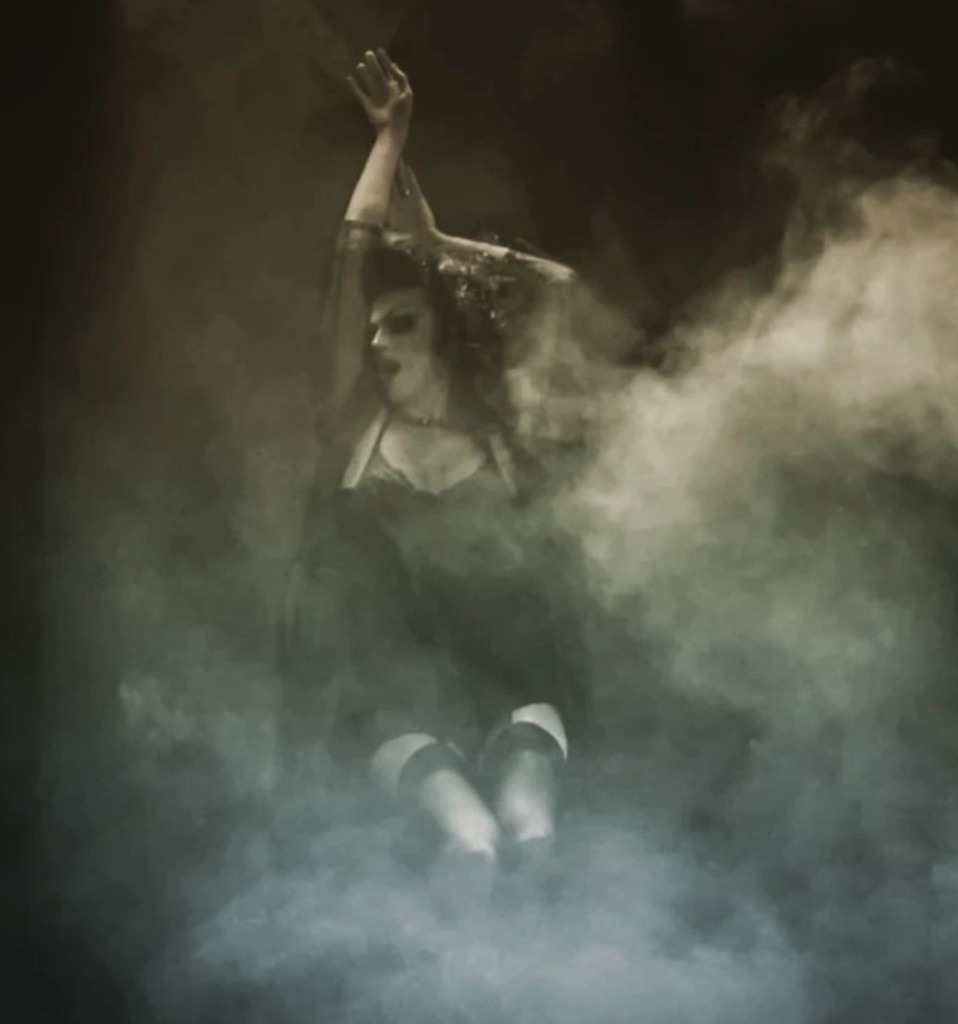
With the success of your projects, it may indicate that the city is ready to welcome what you have to offer. How do you see the evolution of the scene and the mentalities of the world around drag, queer, etc.?
Now that I have been in the circuit for almost 18 years, I have seen a very, very big evolution. Especially at the drag level, of course. When I started it wasn’t especially well regarded. Quick recap : In the 90s there was a boom of American drag queens with ultra eccentric looks. For a few years we saw them everywhere in all the clubs, even the straight ones. Then in the early 2000s, when I started, there was a sort of rejection of Drag, even within the gay community. In Brussels, there were few gay places, there was Chez Maman, the Boule Rouge and the Homo Erectus or the Cancan and gradually some of these places closed down and therefore not much was happening. Then a few years ago came the RuPaul Drag Race shows. We then saw a certain revival of interest around Drag, it attracted a new audience, which didn’t necessarily belong to the LGBT community including a female audience who was more and more interested in Drag. In Brussels, it could only be found at Chez Maman and – from 2017 – at Cabaret Mademoiselle. Then with COVID, lots of small events popped up in squats and other unconventional places. There was this definite willingness from the new alternative queer scene to come up with new things. All this has started to grow, becoming more and more professional, such as Blanket’s Playback events, there’s also Brenda’s Just The Tip. There is indeed more and more openness and opportunities for this culture.
On our side we saw a considerable recognition this summer when Delphine Houba – Echevine de la Culture – and the city of Brussels accepted our candidacy to occupy the Vaux Hall every Friday evening. There we presented our Dragshows and queer performances, talking about politics, gender and transidentity in front of almost 1000 people every night. It proves that the city of Brussels has made huge leaps forward. It was a great victory to be able to tell ourselves that those of us who would perform in our mini venues located in Rue Marché aux Charbons like street-artists, would end in in a beautiful setting right at the heart of the Parc Royale in Brussels. We realise that things are changing, that mentalities are changing. Still, where there are still big steps to be made, is within the old institutions and cultural administrations. Drag is still not recognised as an artistic activity. For example, drag queens are still not eligible for the artists’ status. I hope that the upcoming reform will be able to open our rights to access it because for the now if we still need to classify ourselves either as dancers or comedians since “Drag Queen” does not yet fit into any of their boxes.
Do you think there’s enough room for everyone locally in this culture?
I do think so. Especially in subcultures like ours, we should stick together rather than shoot each other in the leg and see each other as adversaries. With The Agenda I welcome all initiatives like Playback and Just The Tip to give them a space. I like being able to share our experience and professionalism – for example, explaining how to set up a contract for artists. I think it’s important because if you want to claim a certain cultural recognition you have to ditch the cash envelopes slipped at the end of the evening. Because that’s not how you prove that you have artistic activities. It is very important to put a legal frame to all of this. I think the more the better, the wider the queer offer, the better. We are clearly in a new wave where lots of new creatures and new projects are born. I would like to have the place to work with everyone but for that I would need a third venue. My dream is to acquire an old theatre but maybe I should calm down at some point.
I am so passionate and driven by what I do. When I look back on what I’ve accomplished, I’m incredibly grateful to be able to live from my passion. Even if sometimes it’s difficult, I still have two establishments that work and a whole troop that follows me in all my crazy endeavours filled with a festive and good-natured atmosphere. Instead of going out in the streets to throw cobblestones, we get on stage and throw glitter. The amount of feedback we receive from people who never questioned themselves about gender, non-binary identities, feminism or patriarchy and who, after a show at the cabaret, tell us that we made them change their viewpoint – that’s a victory every time and it’s magical.
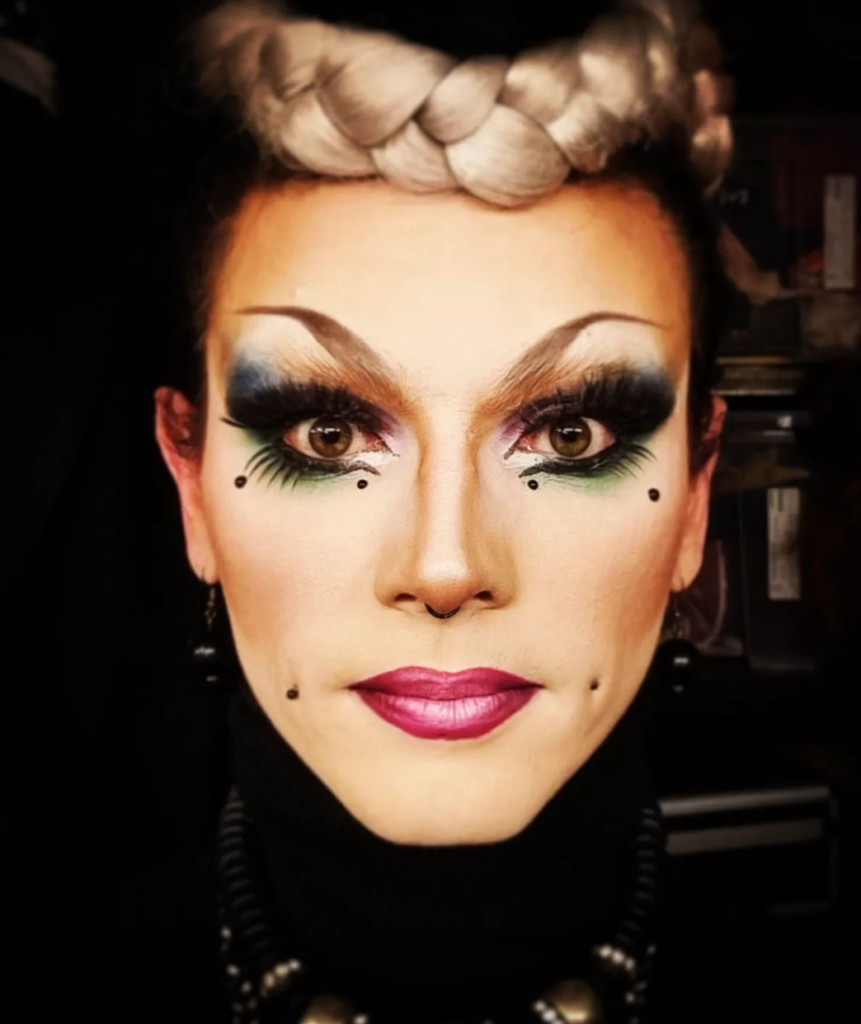
You may also like
-

Adriano Selva: The Soulful Pop Dreamer Who Feels It All
In a world that often rewards detachment, Adriano Selva chooses to stand beautifully exposed. His
-
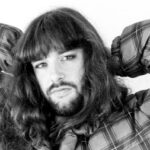
Splinters of Joy: Lylybeth Merle’s Eco‑Queer Fairy Tale of Transition and Healing
Lylybeth Merle’s new book Échardes (“Splinters”), out in February 2026, is a tender, defiant journey through gender,
-
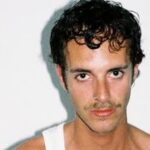
Music, Books and Brussels: A Conversation with Elliot Ibouzidene
Meeting artist Elliot Ibouzidene to talk about music, literature and his “unwritings” of Athens and Copenhagen, in
-

Renee Nicole Good: Community Mourns the Loss of a Queer Mother, Poet, and Advocate for Compassion
Renee Nicole Good, a 37‑year‑old queer writer and mother of three, was killed on Wednesday
-

The Bloemardin: Brussels’ Forgotten Rebel Spirit
If you’ve ever wandered past Brussels City Hall, you might have noticed a small statue

